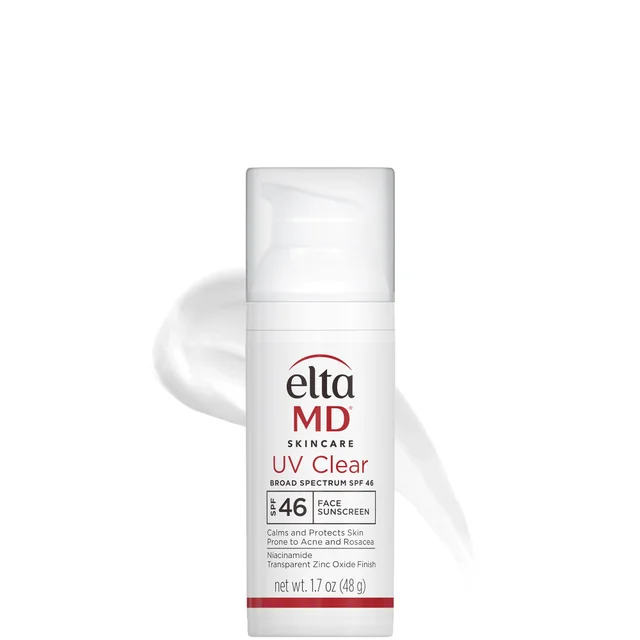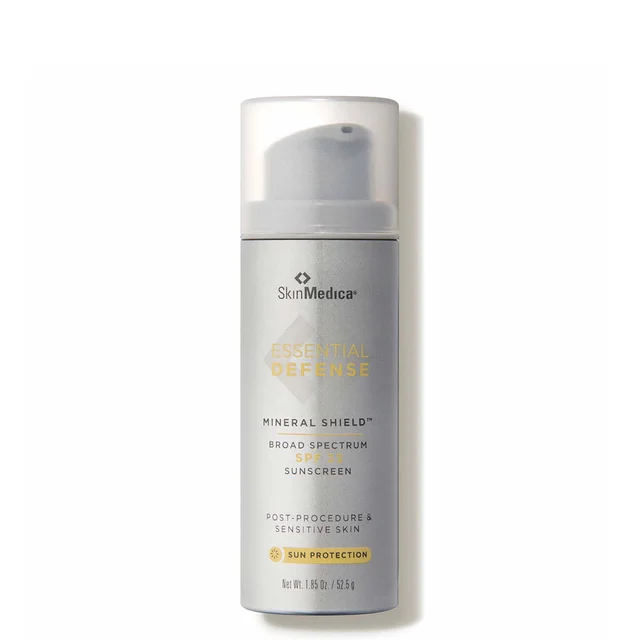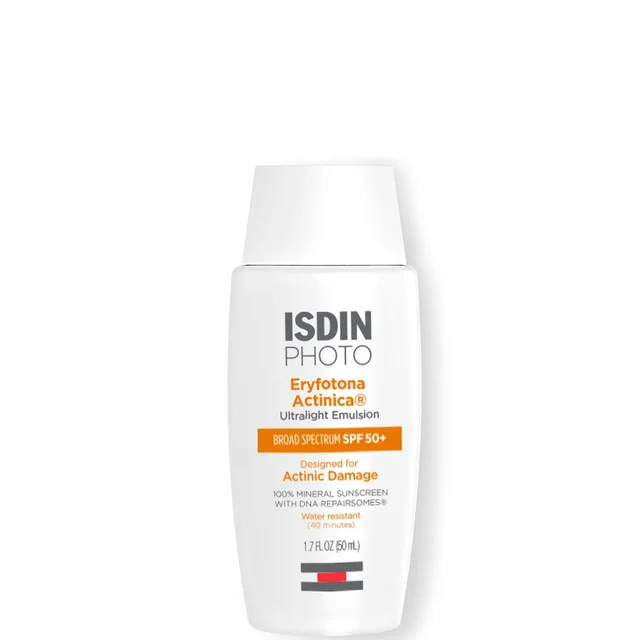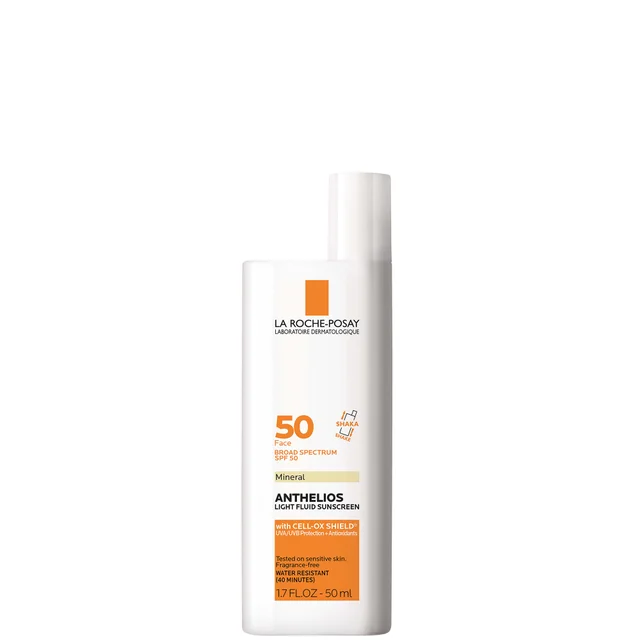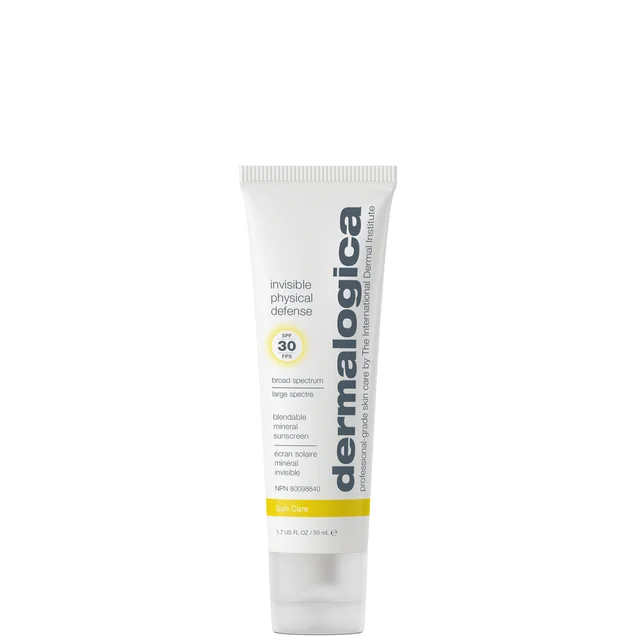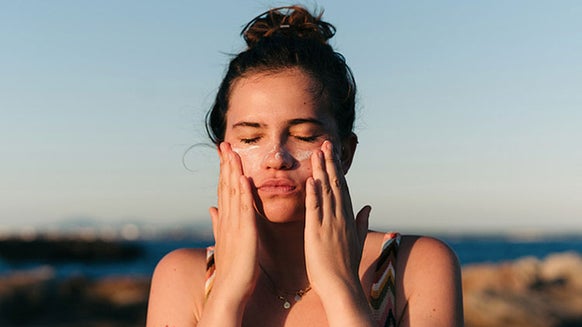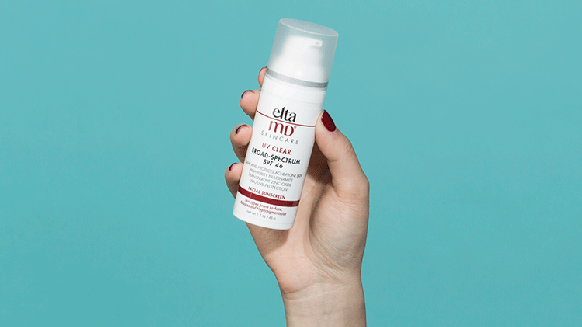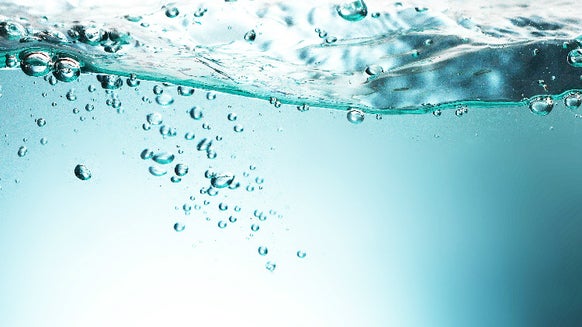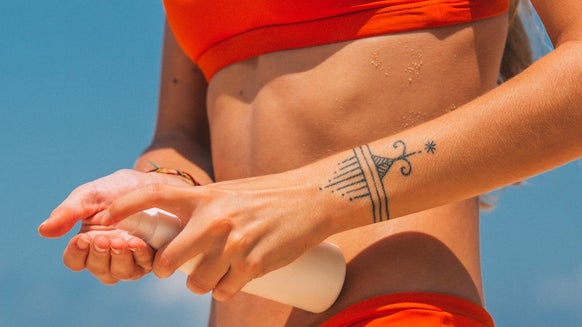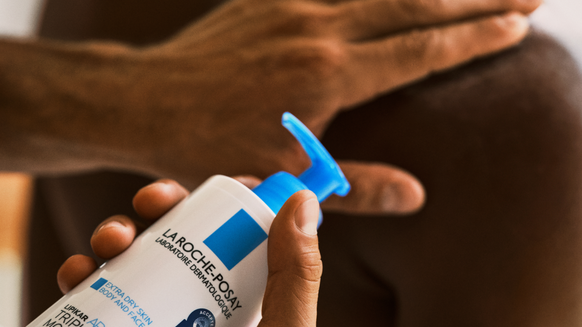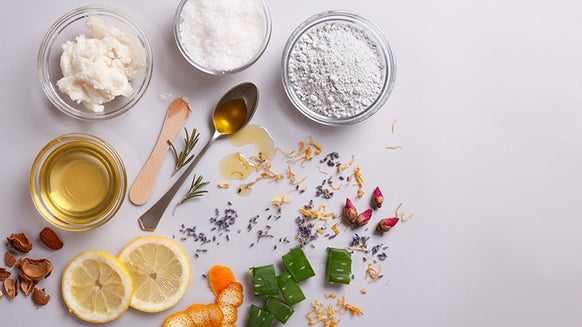Is Zinc Oxide Good for the Skin? A Derm-Approved Guide to this Mineral Skincare Marvel
When choosing skincare products, it’s fair to say many of us don’t always understand the ingredients in our chosen products—nor do we know what they do exactly. Consider zinc oxide. It sounds like something that should be stashed away in a science lab, but it’s one of the most ubiquitous components of skincare products. For one, it’s a proven sunscreen ingredient known for offering total UV defense and a well-established safety profile. So, is zinc oxide good for the skin, and why does it make skin pros swoon over its protective prowess? We spoke with a dermatologist to help us demystify this powerhouse ingredient and understand how zinc oxide earns its place as a universal skincare staple.
Meet the Expert
Dr. Connie Yang - Board-certified dermatologist and member of Dermstore's Medical Advisory Board
What Is Zinc Oxide?
Zinc oxide is a fine white powder created when the mineral zinc is combined with oxygen. Its long history as a skincare ingredient dates back to ancient times, when it was used as a type of skin protectant and salve for injuries. Today, we know it best as a mineral UV filter and works by creating a physical barrier on the skin’s surface, scattering and preventing ultraviolet light from touching your skin—like how an umbrella shields you from the sun or how a mirror reflects light. It’s this mechanism, coupled with its anti-inflammatory and non-comedogenic properties, that make zinc oxide one of the most efficient, best-tolerated, and sensitive skin-friendly SPF ingredients.
What Does Zinc Oxide Do for the Skin?
Though it’s famous for being the star in mineral sunscreens, zinc oxide is an overachiever with a host of skin-enhancing tricks up its sleeve. “[Zinc oxide] is often used in sunscreens because it protects the skin from both UVA and UVB rays, but it also has anti-inflammatory properties, which is why it’s often also found in calming creams and diaper rash creams to soothe the skin,” explains Dr. Connie Yang, board-certified dermatologist and member of Dermstore’s Medical Advisory Board. Below, a full breakdown of what zinc oxide brings to the table:
Broad-Spectrum UV Protection: Proven through decades of research, trials, and eventually earning an FDA approval (and one of only two mineral sunscreen ingredients to have earned it), zinc oxide’s unmatched UV filtering action is about as good as it gets for overall UVA/UVB protection. Curbs Inflammation: Besides its protective benefits, zinc oxide is an anti-inflammatory that relieves redness and irritation caused by acne, rosacea, eczema, and too much sun. Supports Wound Healing: Zinc is a natural healer that’s been used for centuries to treat cuts, scrapes, and rashes, which is why you’ll often find zinc oxide in healing balms, rash creams, and other products meant to soothe compromised or post-procedure skin. Astringent Effect: Zinc oxide shrinks and constricts pores, aiding in the control of oil production while stabilizing the skin’s moisture levels. Refine Hyperpigmentation: Although not a brightening ingredient itself, zinc oxide supports the skin’s healing process and can be helpful in minimizing post-inflammatory hyperpigmentation.
Does Zinc Oxide Help Acne
Persistent, lingering acne is better handled by targeted ingredients—such as benzoyl peroxide, salicylic acid, and retinol—but zinc oxide can still be a supportive ally in your battle with breakouts.
For starters, zinc oxide is non-comedogenic, which means using sunscreen on oily or acne-prone skin doesn’t have to feel like a game of Russian roulette every single time. It also has mild astringent properties that help skin get ahead of the game when it comes to overactive sebum glands and clogged pores.
Plus, studies have also shown that zinc oxide can be helpful in preventing breakouts and managing acne symptoms. “Zinc oxide has anti-inflammatory properties that can help calm acne breakouts and irritation,” says Dr. Yang. It has also been shown to exhibit an anti-microbial effect, which helps in getting rid of acne-causing bacteria.
To put it simply, zinc oxide alone isn’t going to clear up moderate to severe acne, but it can help the skin along in controlling breakouts by preventing possible triggers and relieving symptoms, especially when paired with other targeted treatments.
Benefits of Zinc Oxide Sunscreen
Sunscreens generally fall under these types: chemical, mineral, and hybrid formulas that combine both chemical and mineral ingredients. Zinc oxide sunscreen is a mineral or physical UV filter that works by creating a layer of protection on the skin’s surface. Unlike chemical sunscreens, which penetrate the skin and absorb UV rays before converting them to heat and releasing them, zinc oxide sunscreen deflects and scatters UV rays before they can reach and do damage to your complexion.
But while the differences between chemical and mineral sunscreens are quite straightforward, getting the right formula for your skin type can be a total head-scratcher. And if you have sensitive or acne-prone skin, then it becomes twice the struggle. The good news? Zinc oxide sunscreen makes it possible for reactive skin to reap the benefits of complete sun protection without worrying about acne or irritation springing out of nowhere. Plus, zinc oxide sunscreens are reef-safe. Meaning, they don’t contain synthetic chemicals that may be harmful to marine ecosystems.
Zinc oxide is non-comedogenic, gentle, and naturally broad spectrum, which means it can effectively protect even the most sensitive skin with no unwanted surprises. It’s also ideal for oily or acne-prone skin types and those looking for low-irritation formulas for compromised, rosacea-prone, or post-procedure skin.
Potential Side Effects of Zinc Oxide on the Skin
Zinc oxide is considered one of the gentlest skincare ingredients and is even approved for use for babies who have extra delicate skin. That said, no skincare ingredient has absolutely zero risk of side effects or unwanted reactions. It used to be that skincare fans avoided zinc oxide sunscreens because of the dreaded white cast it leaves behind. “Zinc oxide is great for most skin tones and types, but it can leave a white cast and thus may not be suitable for darker skin tones unless mixed with darker pigments,” Dr. Yang explains.
Thankfully, SPF formulations have come a long way, and together with the creation of sunscreens in all shapes and sizes—cream, spray, stick, and powder—many zinc oxide sunscreens now come in elegant formulas with smoother and non-greasy texture, lighter consistency, and a near-invisible or tinted finish.
But ghostly visage aside, some users might also notice that zinc oxide in higher concentrations aggravates dryness, particularly to those who are already dealing with dry skin to begin with. And while zinc oxide itself is non-comedogenic, Dr. Yang says certain products with zinc oxide may lead to pore clogging—although that’s likely not the mineral’s fault. “Zinc oxide itself is non-comedogenic, but some zinc oxide sunscreens contain added ingredients that can clog pores. These ingredients include silicones, waxes, and heavy oils.”
Best Zinc Oxide Products for Skin Health
1. Colorescience Sunforgettable® Total Protection™ Brush-On Shield SPF 50
There’s everything to love about this mineral powder sunscreen that’s winning beauty awards left and right for years—and it’s not just its new-and-improved formula that also features hyaluronic acid. From its convenient, self-dispensing brush to complete UVA/UVB and pollution protection, it’s the perfect on-the-go SPF that keeps your skin sun- and environment-proof while enhancing your natural radiance.
2. EltaMD UV Clear Broad-Spectrum SPF 46
We’ve said it before, and we’ll say it again. This always-flying-off-the-shelves zinc oxide sunscreen is the holy grail of all SPF holy grails. Scent-, shine-, and irritation-free, this hydrating and pore-clearing (thanks to lactic acid) sunscreen delivers on all fronts: UVA/UVB protection, non-clogging, hydrating, and gentle on compromised, sensitive, and rosacea-prone skin.
3. SkinMedica Essential Defense Mineral Shield Broad-Spectrum SPF 35
If your skin has been having a rough go at things—whether from intense sensitivity or recovering after a procedure—it’s crucial to keep it completely protected from the sun while soothed and comforted at the same time. This advanced mineral sunscreen does both and everything else in between, including reducing puffiness and inflammation, calming redness, improving discoloration, and slowing down signs of aging.
4. ISDIN Eryfotona Actinica Mineral Broad-Spectrum Face Sunscreen SPF 50
Ultralight, fast-absorbing, and serious about protecting and repairing damaged skin, this mineral sunscreen is the perfect day-to-day skin companion. Aside from zinc oxide, vitamin E and DNA Repairsomes® also headline its formula, aiding the skin’s self-repair process and keeping environmental aggressors and signs of aging at bay.
5. MDSolarSciences Mineral Crème SPF50
With a formula that combines vitamin C, pomegranate antioxidant, titanium dioxide, and micronized zinc oxide, this silky broad-spectrum sunscreen feels like a luxurious treat for your skin while also making sure to tick all the boxes of what superior SPF should be. It’s broad-spectrum, anti-aging, protects the skin from environmental damage, and gentle on sensitive and acne-, rosacea-prone skin. We love that it has a creamy texture but still feels weightless when applied to the skin, even leaving your complexion with a natural, “barely there” finish.
6. La Roche-Posay Anthelios Ultra-Light Mineral Sunscreen SPF 50
Fast-absorbing, water-resistant, and nearly invisible after application, this 100 percent mineral and antioxidant-powered (including the brand’s own Cell-Ox Shield® Technology, vitamin E, and thermal spring water) sunscreen pulls all the stops to ensure delicate and easily triggered skin gets all the nourishment and SPF protection it needs.
7. EltaMD UV AOX Elements Broad-Spectrum
If you’re on the hunt for sunscreen that goes above and beyond, then look no further than this mineral-powered tinted SPF. One of EltaMD’s newer creations, it provides some of the most comprehensive protection against environmental aggressors—from UVA and UVB rays to HEV light and ozone. But that’s not all. It’s also loaded with vitamins C and E, hyaluronic acid, and bisabolol to protect yourself from free radicals, restore signs of photoaging, increase hydration, and reduce redness.
8. Dermalogica Invisible Physical Defense
Moisturizes but non-greasy, calms while fighting off free radical damage, and provides total UVA and UVB protection without chemical filters—what’s not to love? Infused with green tea, non-nano zinc oxide, mushroom complex, and hyaluronic acid, this physical sunscreen blends beautifully while reducing oiliness and maintaining the skin’s optimal moisture.
9. Epionce Daily Shield Lotion Tinted SPF 50
With its powerful SPF 50, gentle and hydrating ingredients, glow-y finish, and lightweight texture that works beautifully on its own or under makeup, this tinted mineral sunscreen is every minimalist skincare fan’s dream.
10. Noble Panacea The Energist Multi-Defense Cream SPF50 - 60 Dose
This masterpiece of a sunscreen is a perfect example of just how far sunscreen technology has come over the years. Never just your ordinary sunscreen, this photoaging protector and corrector activated by light—the first of its kind—is a multi-defense shield that arms the skin against UVA, UVB, infrared, HEV or blue light, pollution, and free radicals. The result? Skin health longevity, reduced wrinkles and fine lines, and faded dark spots—all thanks to its blend of high-performing active ingredients, including spirulina extract, ferulic acid, tri-peptides, and mullein flower extract.
11. Revision Skincare® Intellishade Original SPF 45
Mixing the best of both mineral and chemical sunscreen worlds, this tinted daily moisturizer offers amplified ultraviolet protection—courtesy of zinc oxide, titanium dioxide, and chemical filters—with a hefty serving of anti-aging and antioxidant benefits. Also infused with peptides, vitamin C, coenzyme Q10, and yeast, plankton, and white birch extracts, it moisturizes and seamlessly melts into skin while brightening complexion, holding back free radical damage, and blurring wrinkles and fine lines.
FAQs
Can zinc oxide cause dry skin?
In most cases, zinc oxide is good for dry skin and even helps rebalance the skin’s moisture levels, says Dr. Yang. However, too much of the product can also lead to the opposite and cause more dryness to skin that’s already struggling to retain moisture. If you can’t do without zinc oxide in your routine but are experiencing dryness, reinforce your regimen with products that contain hydrating ingredients like hyaluronic acid, glycerin, or squalane to counter the drying effect.
Can you use zinc oxide on your face every day?
Zinc oxide is gentle enough for daily use, and leaving it overnight (also called “skin basting”) to help your skin retain moisture can also be beneficial to some, says Dr. Yang. “I find this particularly helpful for dry or irritated skin as the zinc forms a protective barrier to lock in moisture and promote healing overnight. But I would be cautious if you are acne-prone as this could potentially worsen your acne.”
Is zinc oxide sunscreen effective?
Absolutely! Zinc oxide sunscreen is not only effective, but it’s also one of only two FDA-approved mineral sunscreen ingredients. Zinc oxide is naturally broad-spectrum and protects the skin from both UVA and UVB rays. It starts working as soon as it’s applied, lasts longer in the water, and is photostable, so it doesn’t easily break down in the sun.
Does zinc oxide sunscreen expire?
Nothing lasts forever, so yes, just like any other SPF, zinc oxide sunscreen does eventually expire. “The zinc oxide itself is quite photostable, but other ingredients in the formula can break down over time, impacting the overall efficacy of the product,” explains Dr. Yang.
The Bottom Line
Considering if zinc oxide is good for the skin? It’s one of the gentlest and most effective skincare ingredients that delivers superb mineral-based protection—whether against harmful ultraviolet radiation, inflammation, acne, wounds, and even hyperpigmentation. With its exceptional safety profile—backed by decades of studies, leading dermatologists, and the FDA—zinc oxide is the gold standard for protection against the sun, especially for those with sensitive, oily, and acne-prone skin. It provides natural broad-spectrum coverage against UVA and UVB rays with none of the potential risks of irritation. A true multitasking powerhouse, zinc oxide also arms your skin against inflammation, excess oil, and acne-causing bacteria, thanks to its anti-inflammatory and antibacterial properties. With newer, more sophisticated formulas and a wide array of applications, zinc oxide is a mineral multitasker that deserves a permanent spot in your skincare lineup.

Janeca Racho is a Journalism graduate with over 15 years of writing experience. After getting her start in public relations and advertising, she made the switch to freelance writing and began working for various lifestyle, fashion, and travel brands. Her love for all things skincare has led her to beauty reporting and research for the last ten years. Writing for several hair and beauty blogs, she reports on anti-aging staples, trending brands and products, must-have ingredients, and health and wellness.
